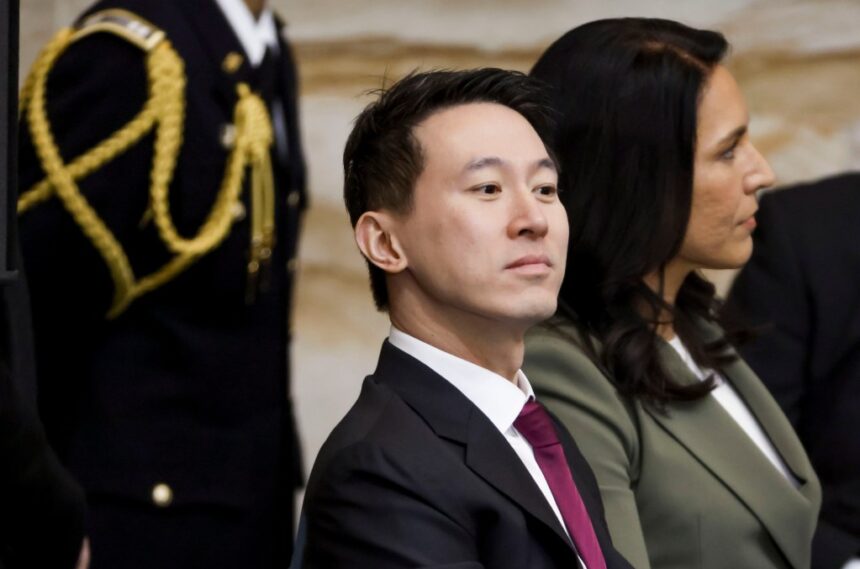As TikTok’s Canadian chapter faces potential closure, the company’s chief executive is making a last-ditch effort to preserve its operations in one of its key North American markets.
Shou Zi Chew, TikTok’s CEO, has requested an urgent meeting with François-Philippe Champagne, Canada’s Minister of Innovation, Science and Industry, following the Canadian government’s announcement that it would ban the social media platform from all government devices. This decisive move mirrors similar restrictions already implemented by the United States, European Union, and several other nations over mounting security concerns.
The high-stakes meeting comes at a critical juncture for the video-sharing platform, which has become deeply embedded in Canada’s entertainment ecosystem. According to recent data from Media Technology Monitor, approximately 38% of Canadian adults now use TikTok regularly, with that number skyrocketing to 76% among those aged 18-24. For Canadian musicians and content creators, the platform has transformed from a novelty into an essential promotional channel.
“TikTok has become the primary discovery engine for new music in Canada,” explains Vanessa Wright, digital marketing director at Maple Music Collective in Toronto. “Artists who break through on TikTok see an average 327% streaming increase across other platforms within weeks. Losing this ecosystem would devastate emerging Canadian talent.”
The Canadian government’s concerns mirror those expressed by other nations – primarily that TikTok’s parent company, ByteDance, could potentially be compelled to share user data with Chinese authorities under China’s national security laws. While TikTok has repeatedly denied these allegations, promising that Canadian user data is stored on servers in Singapore and the United States, these assurances have failed to quell regulatory anxieties.
Canada’s Privacy Commissioner launched an investigation into TikTok’s data practices last year, specifically examining whether the company obtains valid consent when collecting personal information and whether its practices are compliant with Canadian privacy laws. This investigation remains ongoing.
The financial implications of a potential ban extend far beyond TikTok’s corporate interests. The platform has become a cornerstone of the digital economy for thousands of Canadian content creators, many of whom have built substantial businesses through TikTok’s Creator Fund and brand partnership opportunities.
“I went from working three jobs to supporting my family entirely through TikTok,” says Montreal-based creator Jamie Lavoie, who has amassed over 2.3 million followers creating bilingual comedy content. “About 60% of my audience is Canadian. If the platform disappears here, my livelihood essentially vanishes overnight.”
Industry analysts note that TikTok’s struggles in Canada represent just one battlefront in a broader geopolitical technology conflict. The stakes are particularly high for Canadian businesses that have shifted significant marketing dollars to the platform. According to research firm eMarketer, Canadian advertisers spent approximately CAD $1.1 billion on TikTok in 2022, representing nearly 11% of all digital ad spending in the country.
“What makes this situation particularly complex is that TikTok has become infrastructural to entire industries,” explains Dr. Ramona Singh, digital economy researcher at the University of Toronto. “It’s not just entertainment – it’s now fundamental to how products are marketed, how talent is discovered, and how cultural trends propagate across Canada.”
TikTok has taken increasingly aggressive measures to address security concerns, including the establishment of its “Project Clover” data security regime in Europe and similar initiatives in other regions. The company recently announced plans to invest over CAD $2 billion in data security measures globally, though critics remain skeptical about whether these technical solutions address the fundamental regulatory concerns.
Minister Champagne’s office has confirmed receipt of the meeting request but has not yet indicated whether discussions will proceed. The timing is particularly sensitive as Canada prepares to hold federal elections next year, with digital security and data sovereignty emerging as key policy issues.
For the Canadian music industry, which has seen unprecedented international success in recent years partly fueled by TikTok virality, the platform’s uncertain future creates significant strategic challenges. The Canadian Independent Music Association reports that approximately 70% of its members now consider TikTok “essential” to their marketing strategies.
“We’re watching this situation extremely carefully,” notes Sarah McLachlan, CEO of the Canadian Academy of Recording Arts and Sciences, which oversees the JUNO Awards. “The discovery mechanisms TikTok provides have been revolutionary for Canadian artists. If those channels suddenly close, we need to ensure alternative pathways exist for our talent.”
As both sides prepare for potential talks, the clock is ticking. TikTok’s legal team has reportedly drafted preliminary legal challenges should a broader Canadian ban materialize, arguing that such restrictions would violate constitutional protections for free expression.
Whatever the outcome, the situation highlights the increasingly complex relationship between global technology platforms, national security interests, and cultural industries. For Canada’s digital content ecosystem, the resolution of this standoff will have implications that extend far beyond a single app’s future.






